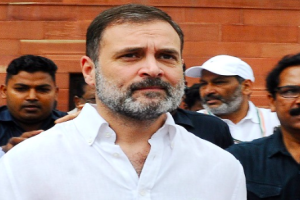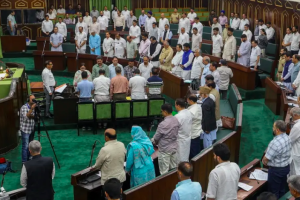A five-judge constitution bench, by a majority of 3:2 in which Chief Justice J S Khehar was in minority, said the practice of “‘talaq-e-biddat’ (triple talaq) is set aside”. The majority judgement pronounced by Justices Kurian Joseph, R F Nariman and U U Lalit did not concur with the CJI and Justice Nazeer’s opinion that ‘triple talaq’ was a part of religious practice and the government should step in and come out with a law, TOI.
Religious law vs the Constitution
Minority verdict: Chief Justice J S Khehar and Justice S A Nazeer held that ‘talaq-e-biddat’ is a matter of ‘personal law’ of Sunni Muslims belonging to the Hanafi school and constitutes a matter of their faith as it has been practised by them for at least 1,400 years.
“We have examined whether the practice satisfies the constraints provided for under Article 25 of the Constitution, and have arrived at the conclusion, that it does not breach any of them. We have also come to the conclusion, that the practice being a component of ‘personal law’, has the protection of Article 25 of the Constitution,” CJI Khehar and justice Nazeer said.
Majority verdict: Justice Kurian Joseph, who penned a separate majority judgement, disagreed with the CJI that the practice of triple talaq has to be considered integral to religious denomination.
“Merely because a practice has continued for long, that by itself cannot make it valid if it has been expressly declared to be impermissible. The whole purpose of the 1937 (Muslim Personal Law (Shariat) Application) Act was to declare Shariat as the rule of decision and to discontinue anti- Shariat practices with respect to subjects enumerated in section 2 which include talaq,” he said.
This view was endorsed by Justices Nariman and Lalit as well.
Judicial action vs legislative intervention
Minority verdict: CJI Khehar and justice Nazeer noted that triple talaq among the Muslims was an integral part of religion and faith that cannot be declared as unconstitutional, but “gender discriminatory” practice can be done away by way of legislation.
They asked the government to frame a law in this regard in six months and, till the time a new legislation is enacted, the practice of divorce through triple talaq, known as ‘talaq-e- biddat’ would not be in operation.
Majority verdict: Justice Kurian Joseph said the process of harmonising different interests was within the powers of the legislature and this power has to be exercised within the constitutional parameters without curbing religious freedom guaranteed under the Constitution.
What does the Quran say about triple talaq?
Let me give you a brief on Talaq before coming to conclusion to whether a ban is necessary or not.
Talaq is a right given to men by islam to divorce his wife in case if the marriage cant be continued for some reason. It is similar to Khula, a right given to muslim women to seperate from her husband if she feels they cant live together hereafter( mind you the reasons have to be valid in both the case or they are sure be questioned here if not definitely on the day of judgement).
There is one significant different between both the methods. In women’s case Islam give her extra freedom and authority i.e A woman can divorce her husband(khula) with immediate effect.
But in case of the talaq, once given, the husband has to wait for three months.
This is when you have to know about the triple talaq . The triple talaq doesnt mean saying or messaging ‘talaq’ three times and ending marriage. Rather it means the person has to wait for a period of three months . Within the stipulated time if there is change in mind or the concerned problem is resolved mutually, they sure can continue the marriage .
“Divorced women remain in waiting for three periods, and it is not lawful for them to conceal what Allah has created in their wombs if they believe in Allah and the Last Day. And their husbands have more right to take them back in this [period] if they want reconciliation. And due to the wives is similar to what is expected of them, according to what is reasonable. But the men have a degree over them [in responsibility and authority]. And Allah is Exalted in Might and Wise” The Quran 2:228
For the second time (which is not bound to happen immediately) if they face an arduous problem, talaq can be pronounced again with the same procedure.
“Divorce is twice. Then, either keep [her] in an acceptable manner or release [her] with good treatment… The Quran 2:229
In the mean time it the responsibilty of the family members to try to reconcile them. The muslim clerics (The Jama’th) can also be approached .
The third time will be the final chance given to a muslim. Things become totaly tough for the husband.
It has to be noted that several months or years passes between each talaqs ( If Allah’s laws are obeyed).
“And if he has divorced her [for the third time], then she is not lawful to him afterward until [after] she marries a husband other than him. And if the latter husband divorces her [or dies], there is no blame upon the woman and her former husband for returning to each other if they think that they can keep [within] the limits of Allah . These are the limits of Allah , which He makes clear to a people who know” The Quran 2:230.
TOI and Ammar

























Add Comment